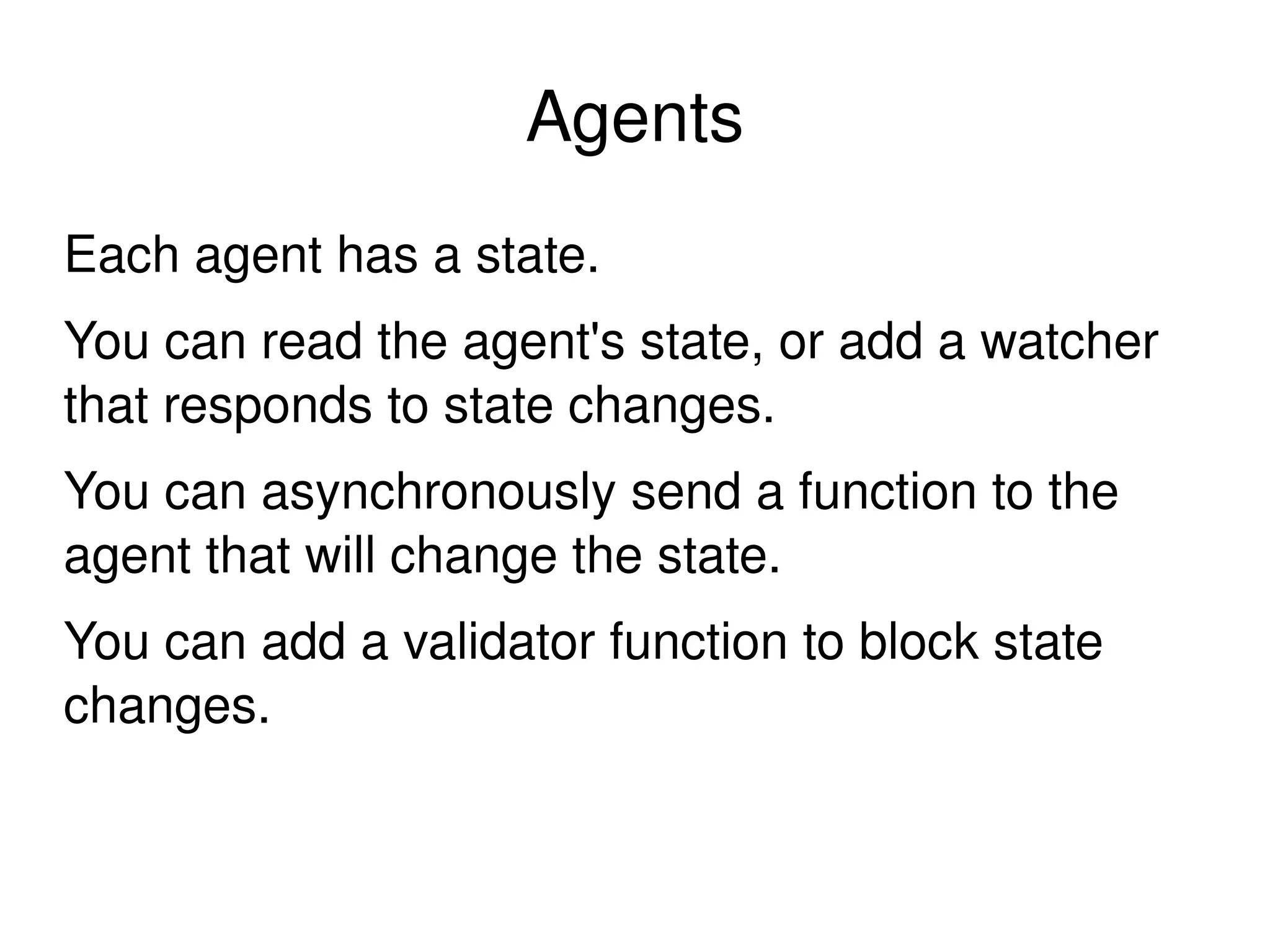Clojure is a Lisp dialect that runs on the Java Virtual Machine (JVM) and provides excellent concurrency support and tight integration with Java. It retains the advantages of Lisp such as being simple, expressive, and flexible while also allowing access to existing Java code and libraries. Clojure makes concurrency easy through features like transactional memory and agents. It can be used to create both Java and Clojure libraries and extends the Java platform.
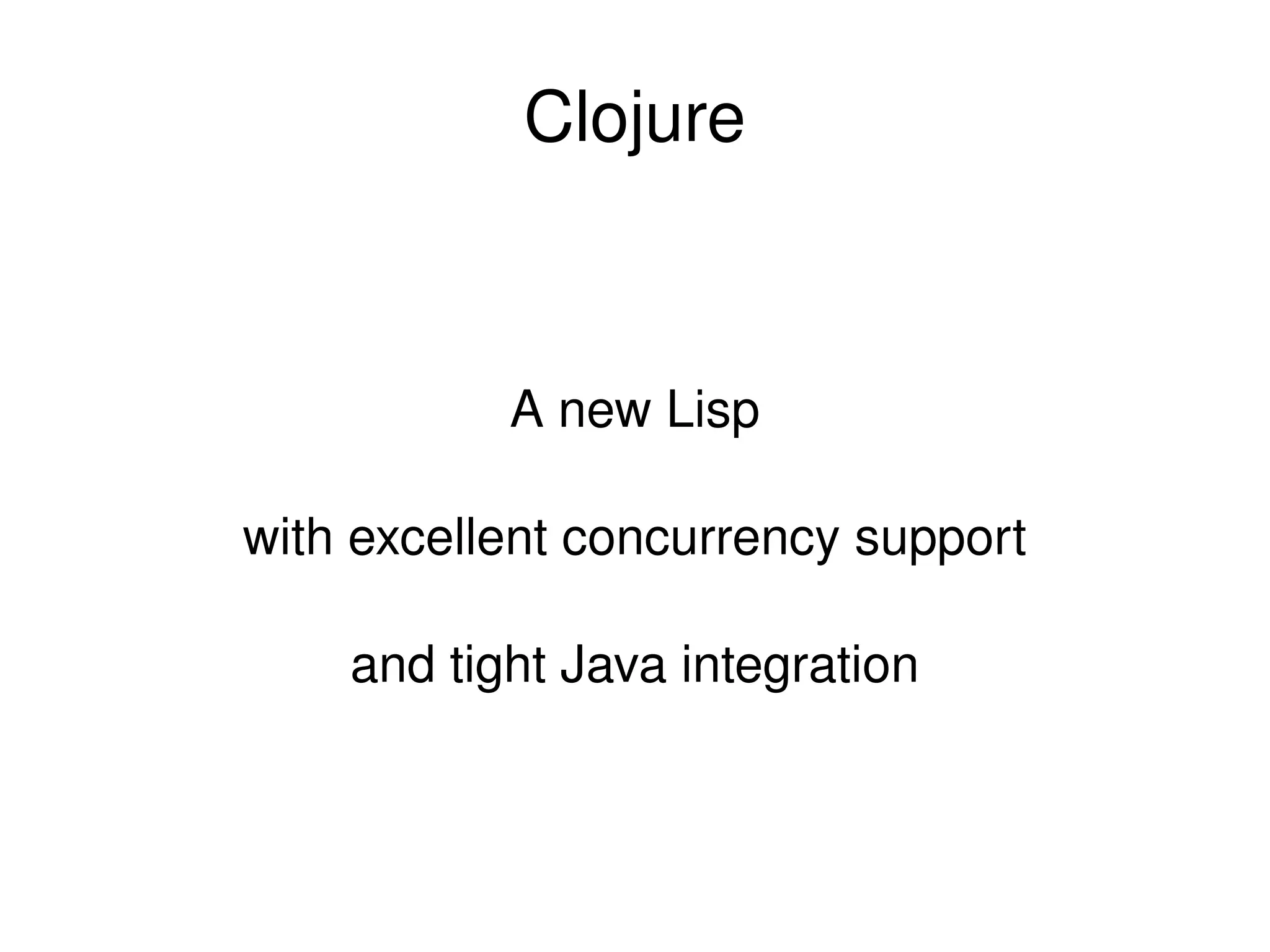
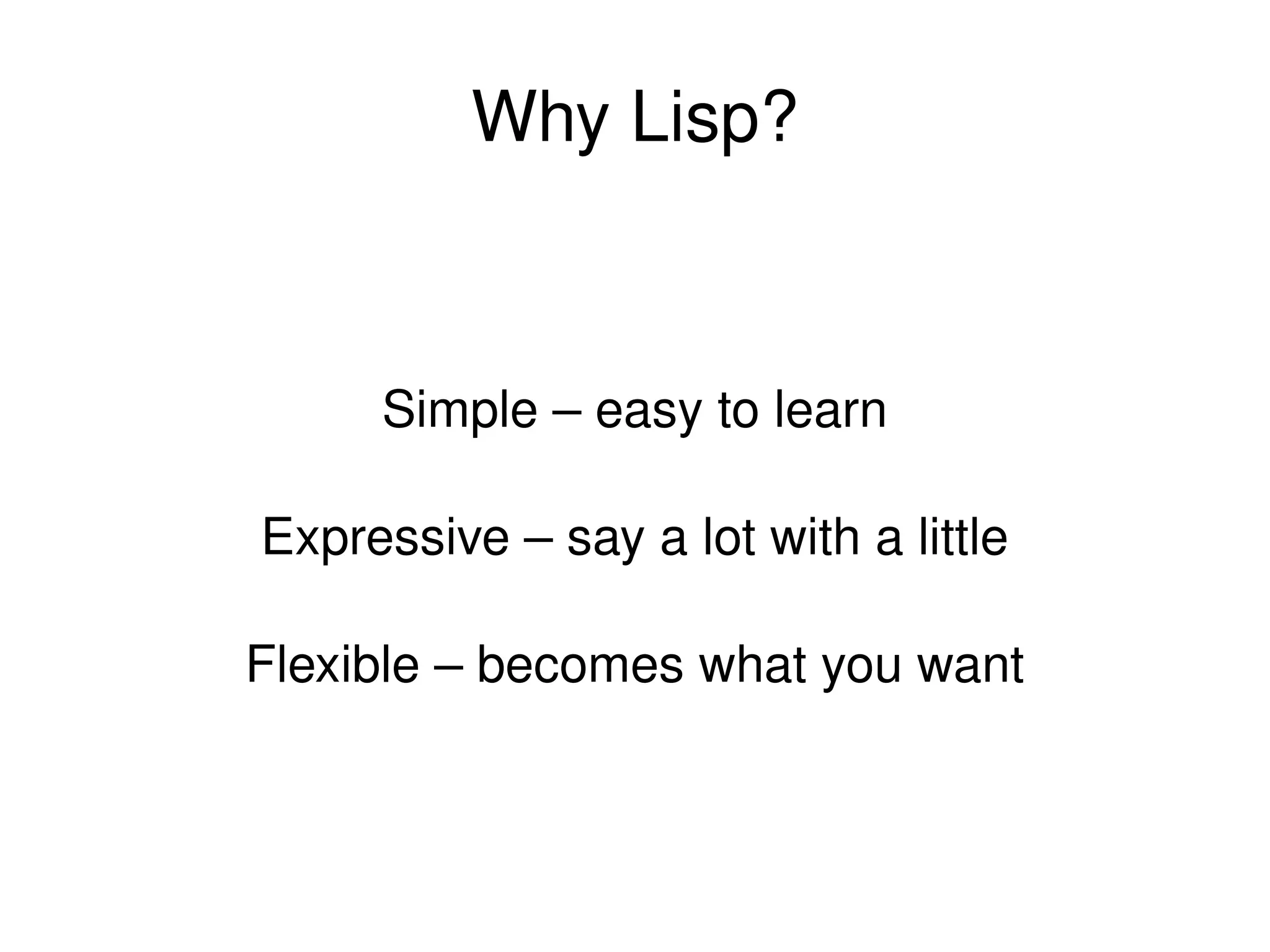
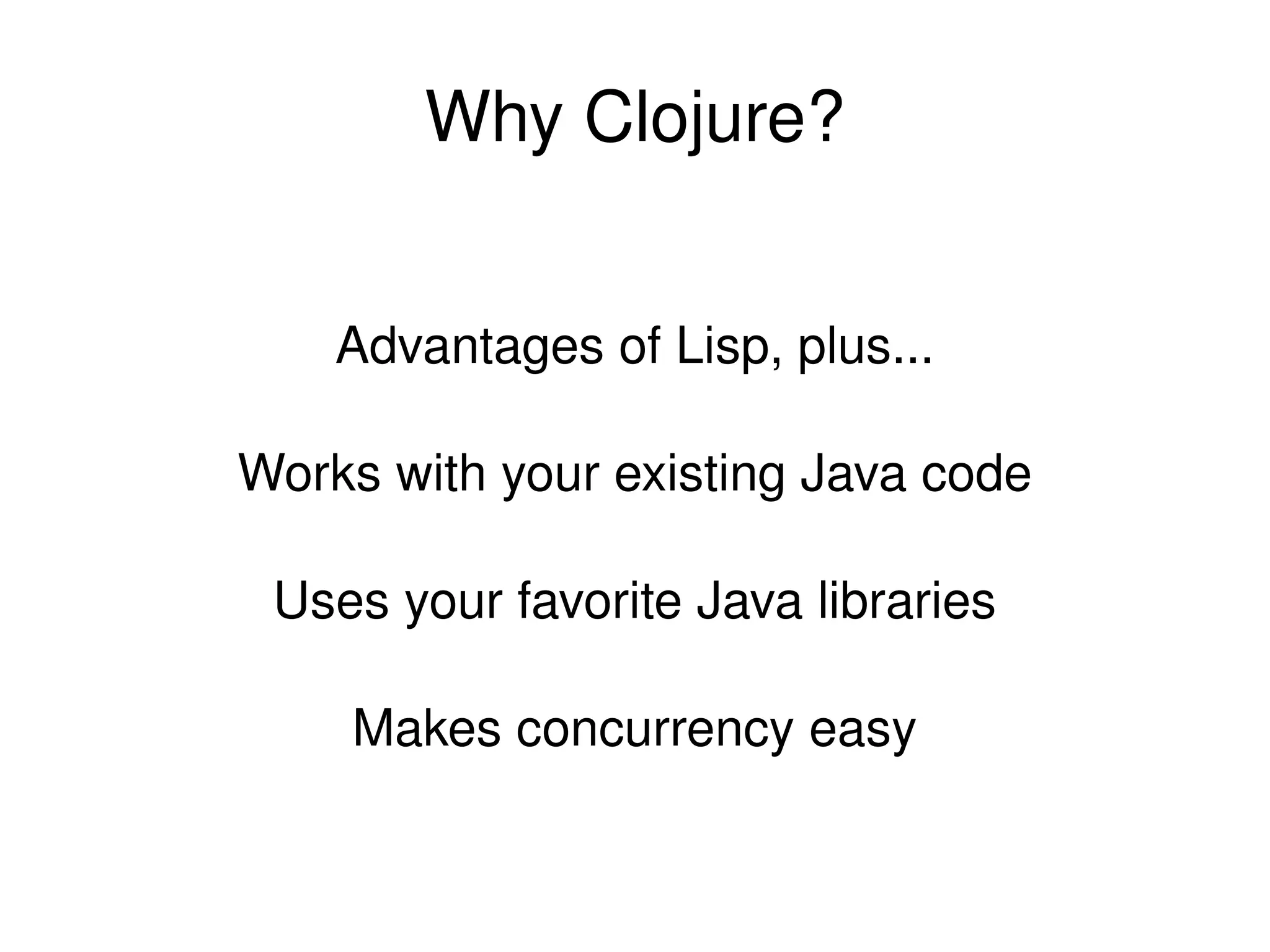
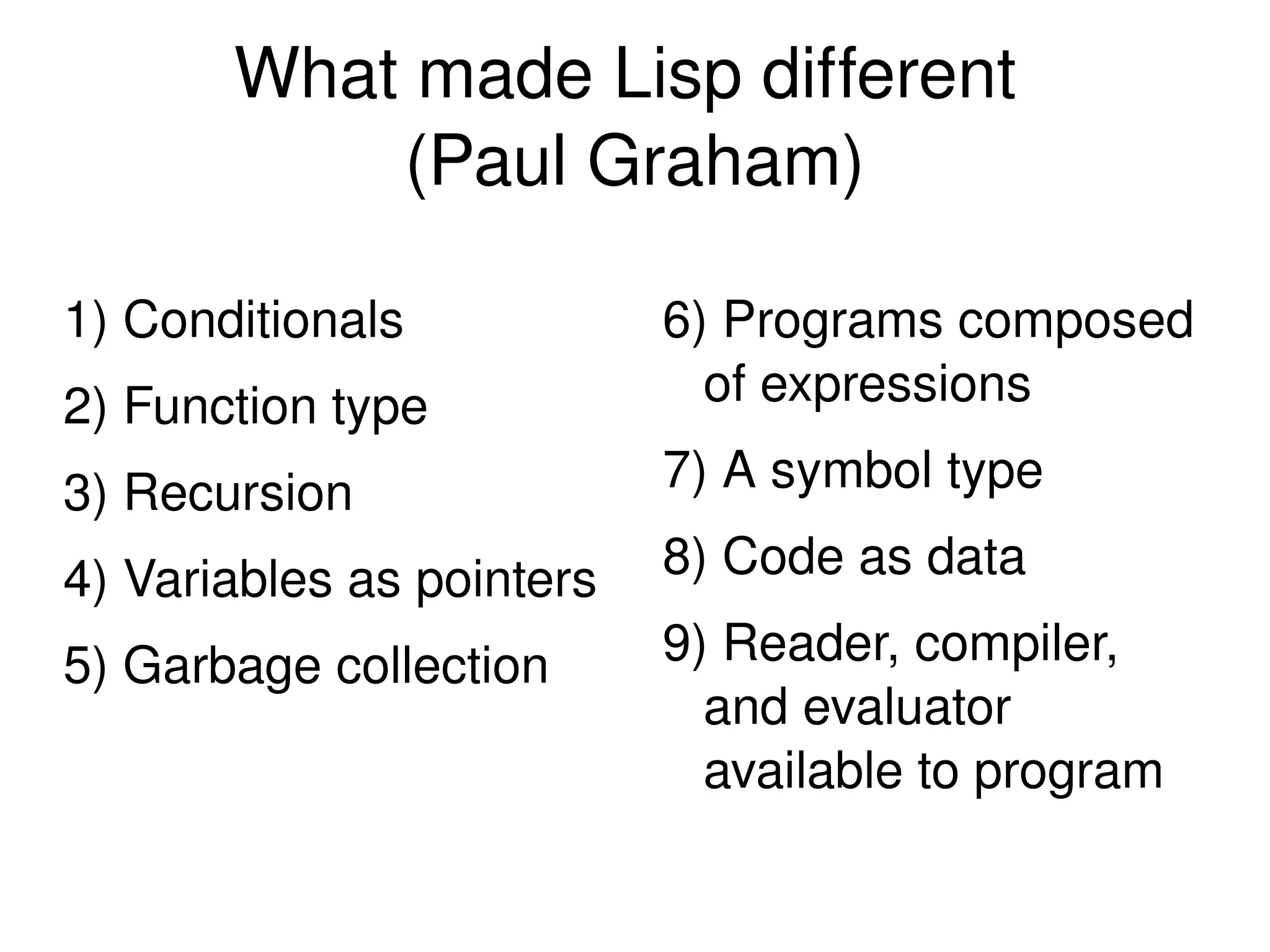
![Simple Data Compound Data
h “house”
74 [1 2 3 4]
true (true false)
:firstname {:firstname “Eric” :last
7/8 name “Lavigne”}
5.4 #{“house” “office”
“museum”}
nil](https://image.slidesharecdn.com/clojure-gatorlug-2009-02-17-100131101311-phpapp01/75/Clojure-A-new-Lisp-5-2048.jpg)
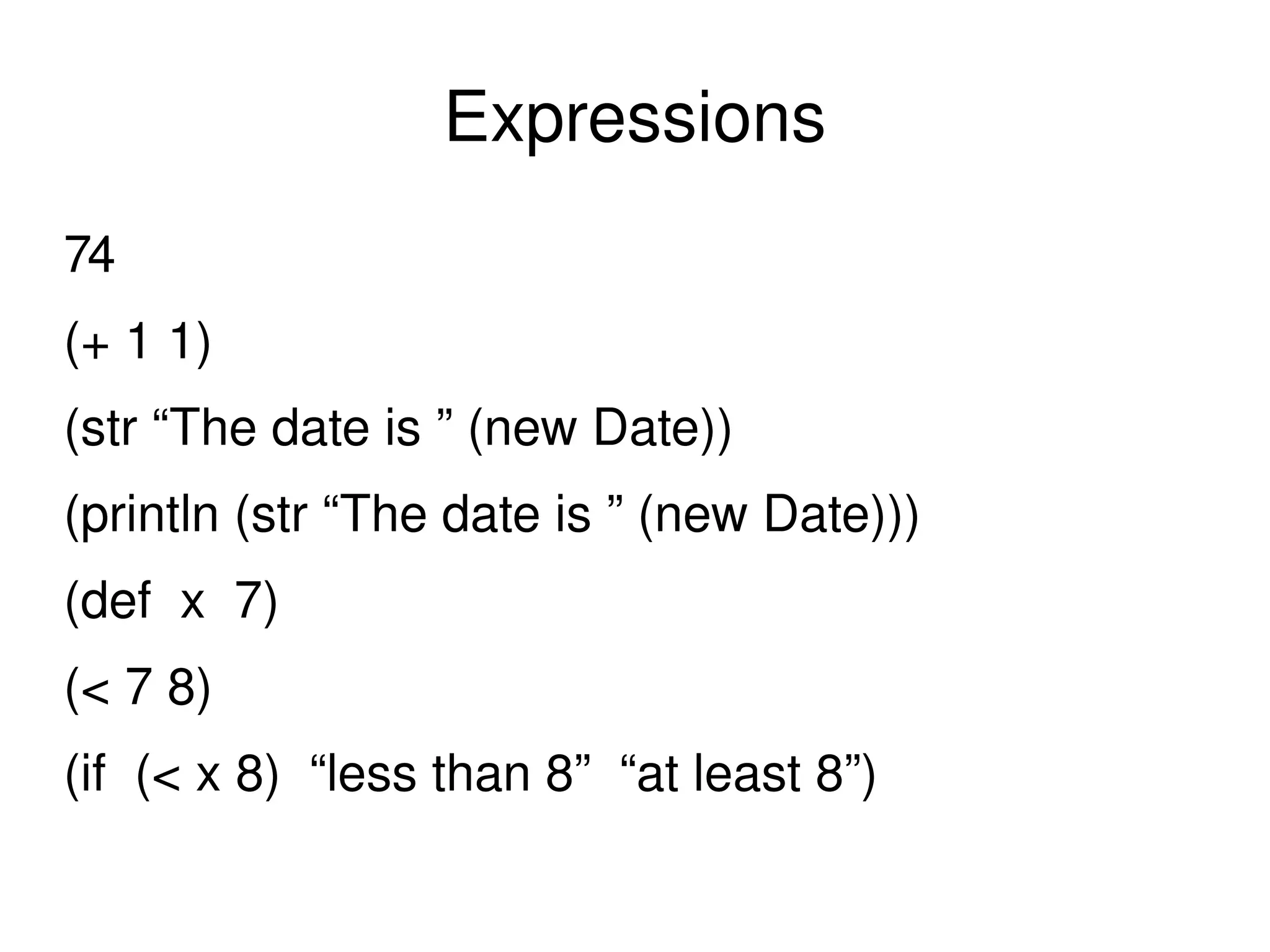
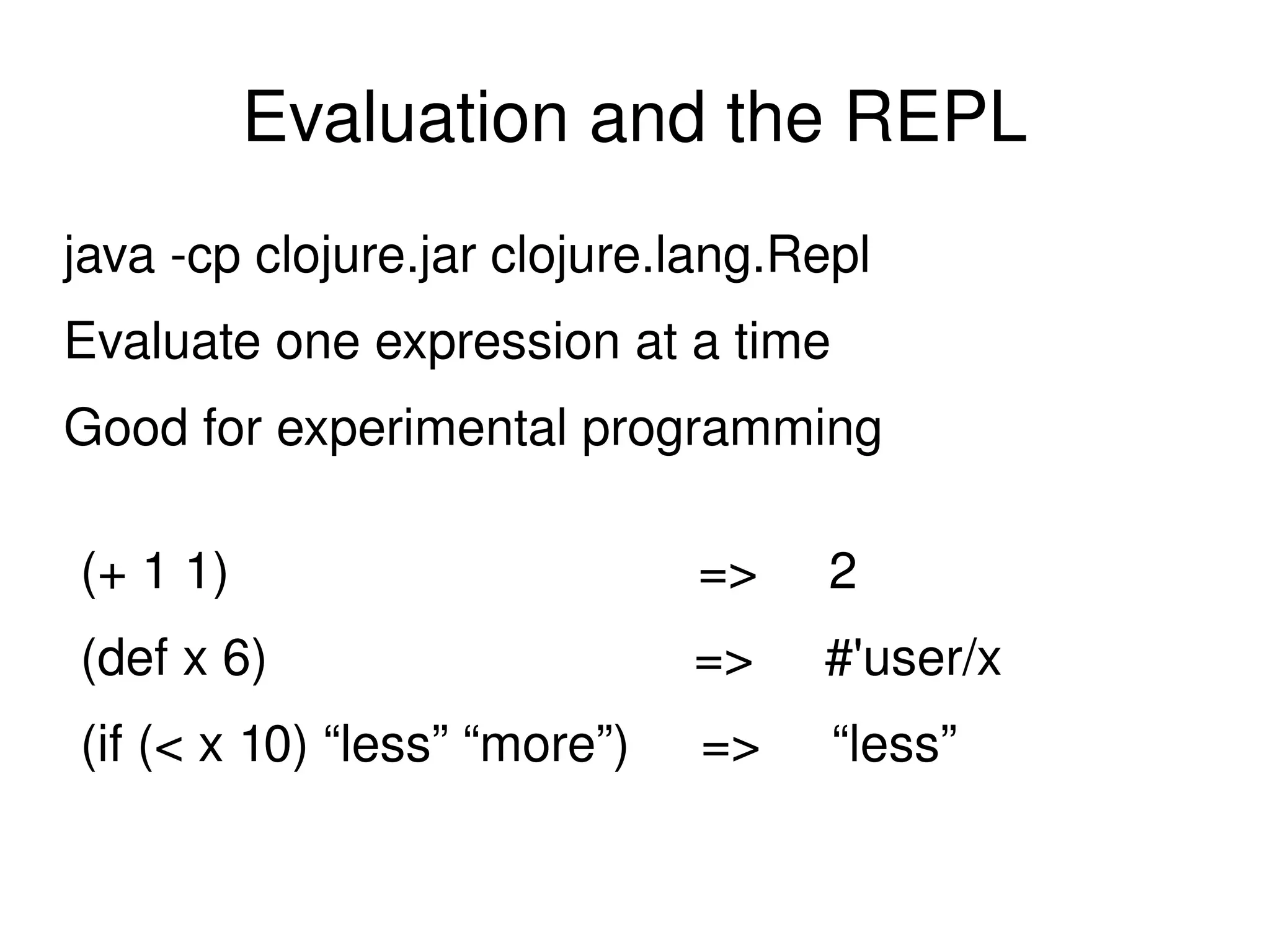
![Functions
(def addsix
(fn [x] (+ 6 x)))
(def hello
(fn [name1 name2]
(str “Hello “ name1 “ and “ name2 “.”)))
(addsix 4) => 10
(hello “Jack” “Jill”) => “Hello Jack and Jill.”](https://image.slidesharecdn.com/clojure-gatorlug-2009-02-17-100131101311-phpapp01/75/Clojure-A-new-Lisp-8-2048.jpg)
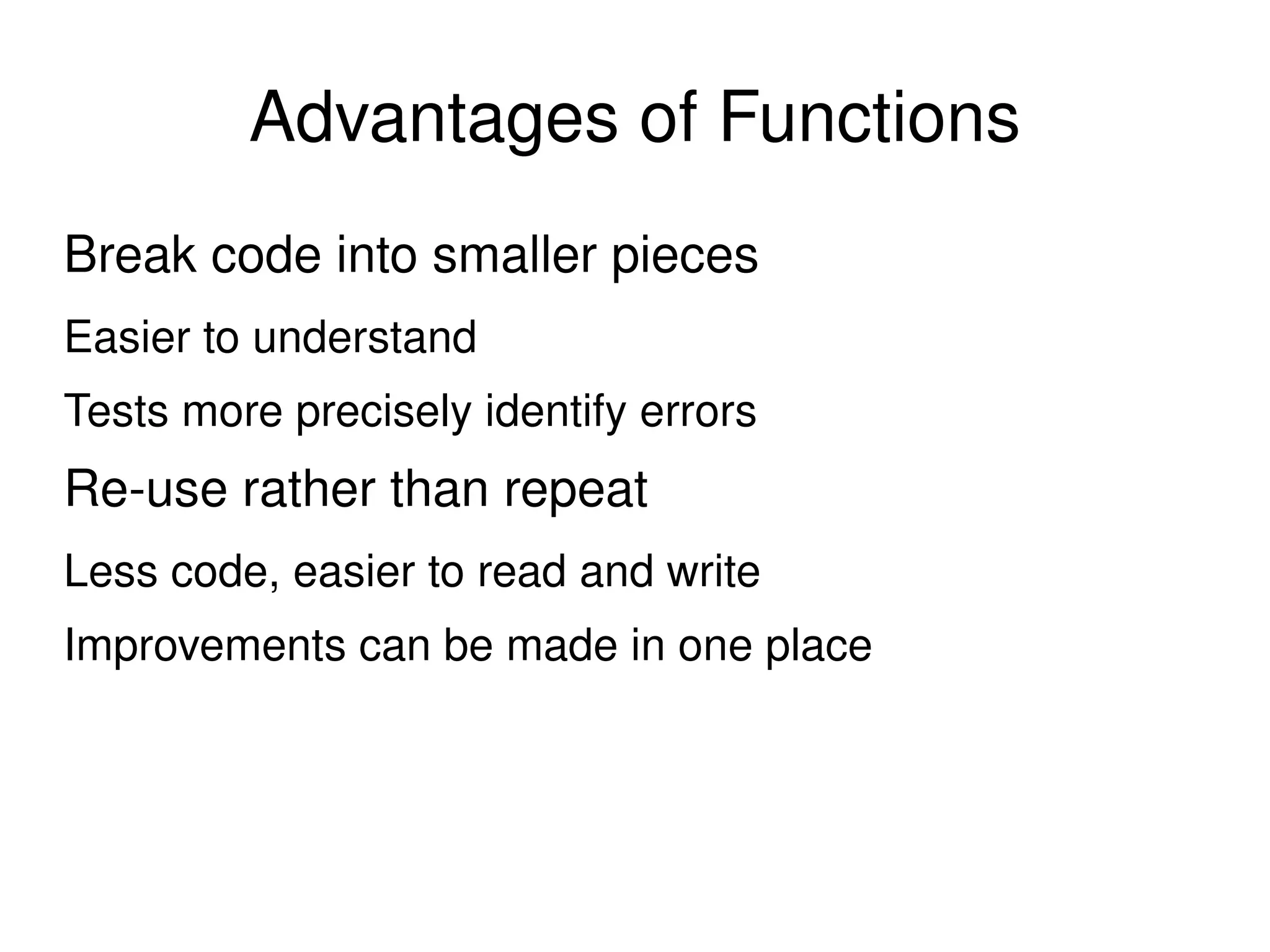
![HigherOrder Functions
Functions can be used as input to other functions.
(map addsix [0 4 10]) => (6 10 16)
(def sum
(fn [x] (reduce + 0 x)))
(def product
(fn [x] (reduce * 1 x)))](https://image.slidesharecdn.com/clojure-gatorlug-2009-02-17-100131101311-phpapp01/75/Clojure-A-new-Lisp-10-2048.jpg)
![Macros
Tired of patterns like this?
(def addsix (fn [x] (+ x 6)))
The defn macro in the standard library allows you
to write this:
(defn addsix [x] (+ x 6))
Patterns are a sign that it's time for a function or
macro. Don't repeat yourself :)](https://image.slidesharecdn.com/clojure-gatorlug-2009-02-17-100131101311-phpapp01/75/Clojure-A-new-Lisp-11-2048.jpg)
![Macros for Web Development
(ns hello
(:require [compojure.http.servlet :as servlet])
(:require [compojure.http.routes :as routes])
(:require [compojure.server.jetty :as jetty]))
(servlet/defservlet helloservlet
(routes/ANY "/*" "Hello."))
(jetty/defserver helloserver
{:port 80}
"/*" helloservlet)
(jetty/start helloserver)](https://image.slidesharecdn.com/clojure-gatorlug-2009-02-17-100131101311-phpapp01/75/Clojure-A-new-Lisp-12-2048.jpg)
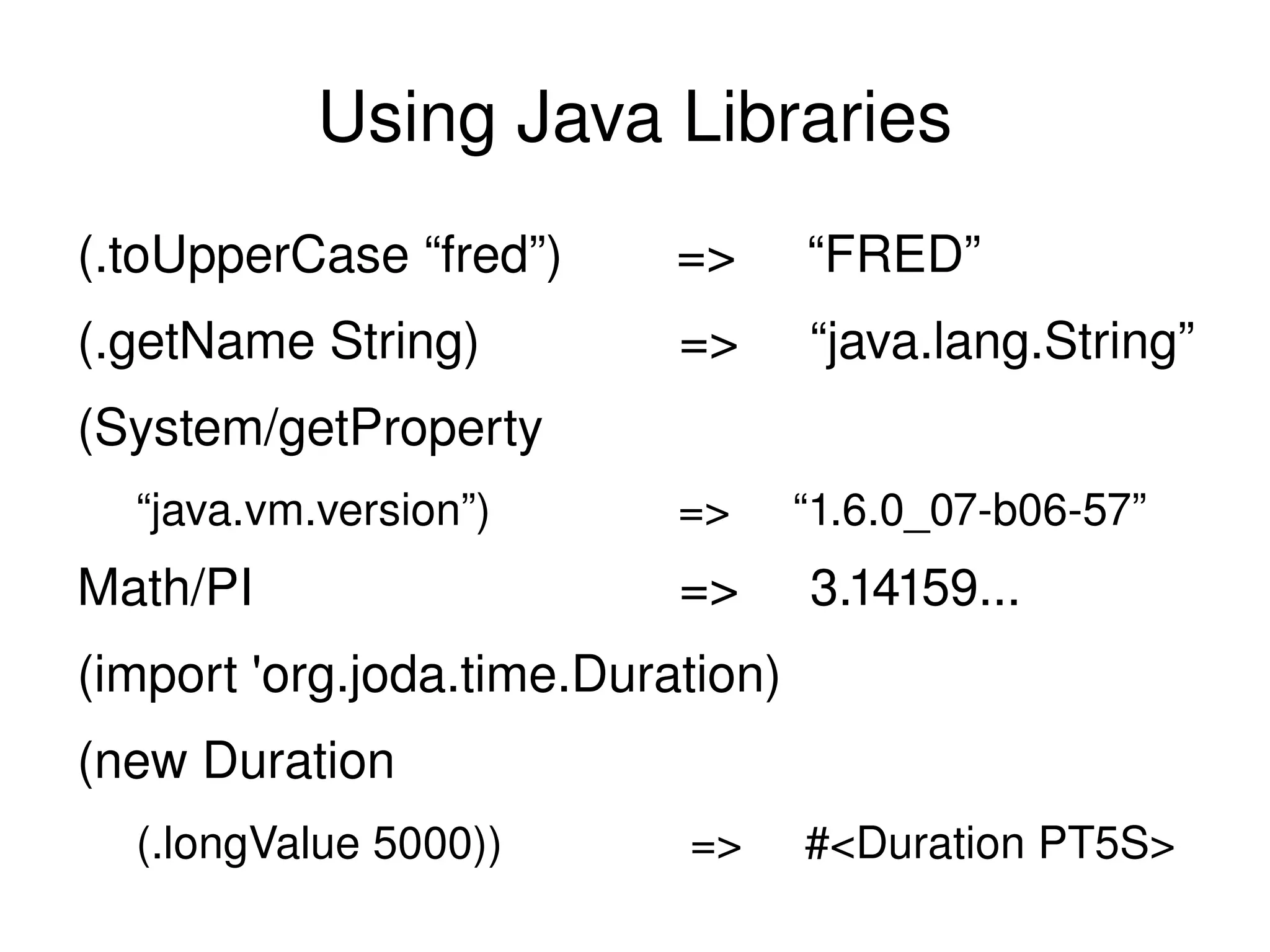
![Extending Classes and Interfaces
button.addActionListener(
new ActionListener() {
public void actionPerformed(ActionEvent evt) {
System.out.println("Button Pressed");
}
}
);
(.addActionListener button
(proxy [ActionListener] []
(actionPerformed [evt]
(println "Button Pressed"))))](https://image.slidesharecdn.com/clojure-gatorlug-2009-02-17-100131101311-phpapp01/75/Clojure-A-new-Lisp-14-2048.jpg)
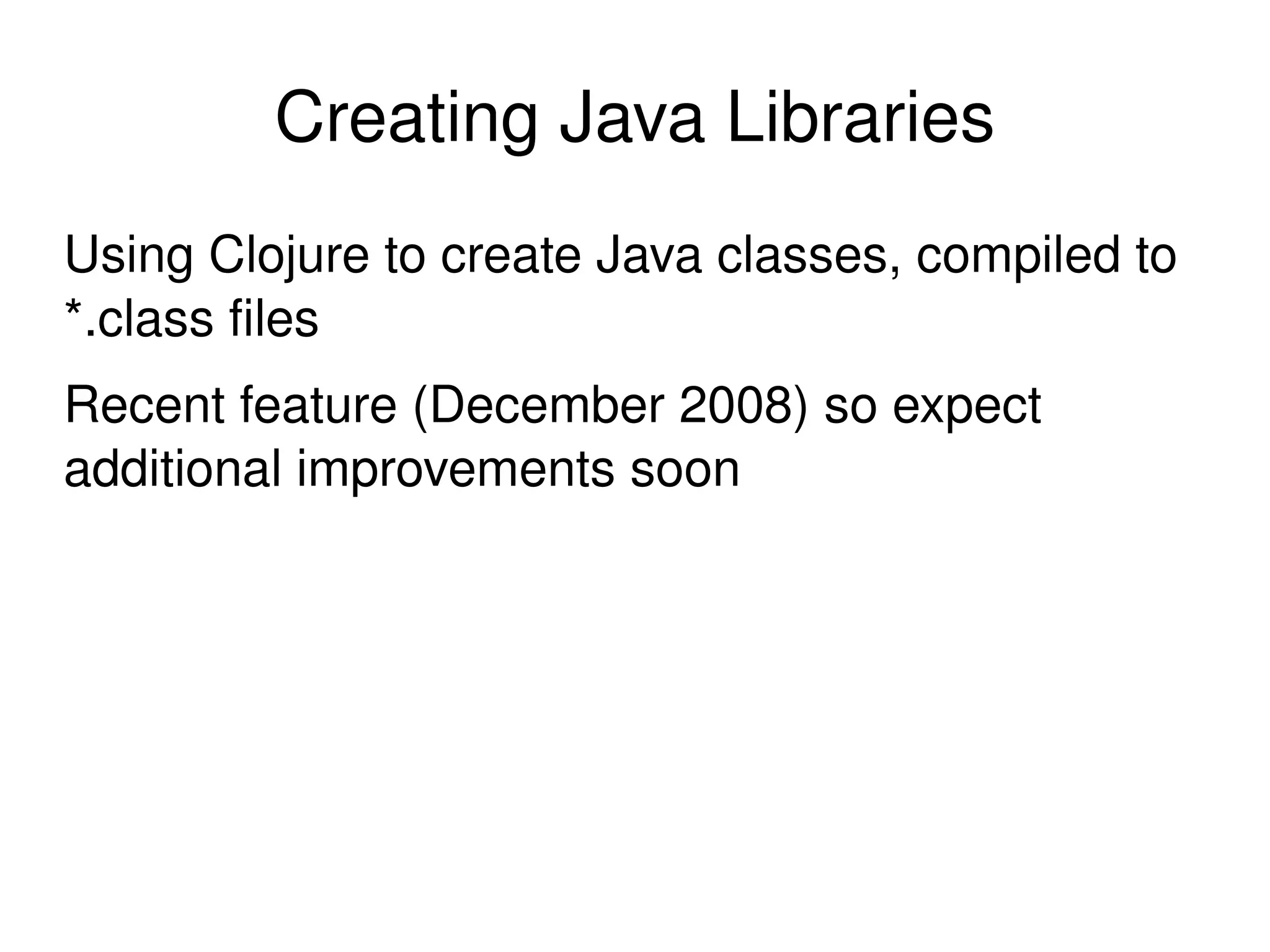
![How It Will Be Used
package aotexample;
public class TestMultipliers {
public static void main(String[] args) {
System.out.println("Result of Java version is "
+ new JavaMultiplier(3).multiply(2));
System.out.println("Result of Clojure version is "
+ new ClojureMultiplier(new Integer(3)).multiply(2));
}
}](https://image.slidesharecdn.com/clojure-gatorlug-2009-02-17-100131101311-phpapp01/75/Clojure-A-new-Lisp-16-2048.jpg)
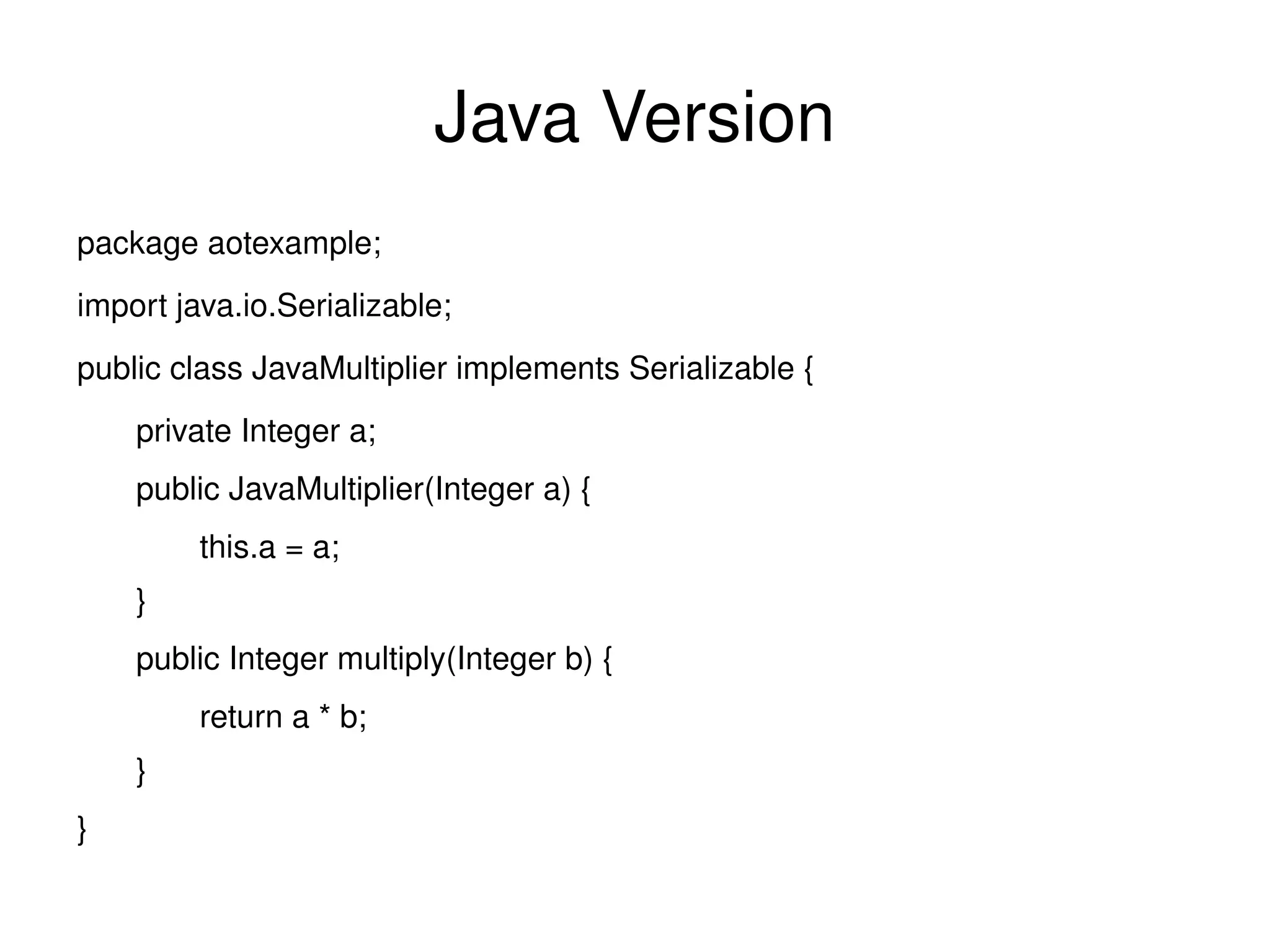
![Clojure Version
(ns aotexample.ClojureMultiplier
(:import (java.io Serializable))
(:genclass
:implements [java.io.Serializable]
:methods [[multiply [Integer] Integer]]
:state a
:init initmultiplier
:constructors { [Integer] [] }))
(defn initmultiplier [a]
[[] a])
(defn multiply [this b]
(* (.a this) b))](https://image.slidesharecdn.com/clojure-gatorlug-2009-02-17-100131101311-phpapp01/75/Clojure-A-new-Lisp-18-2048.jpg)
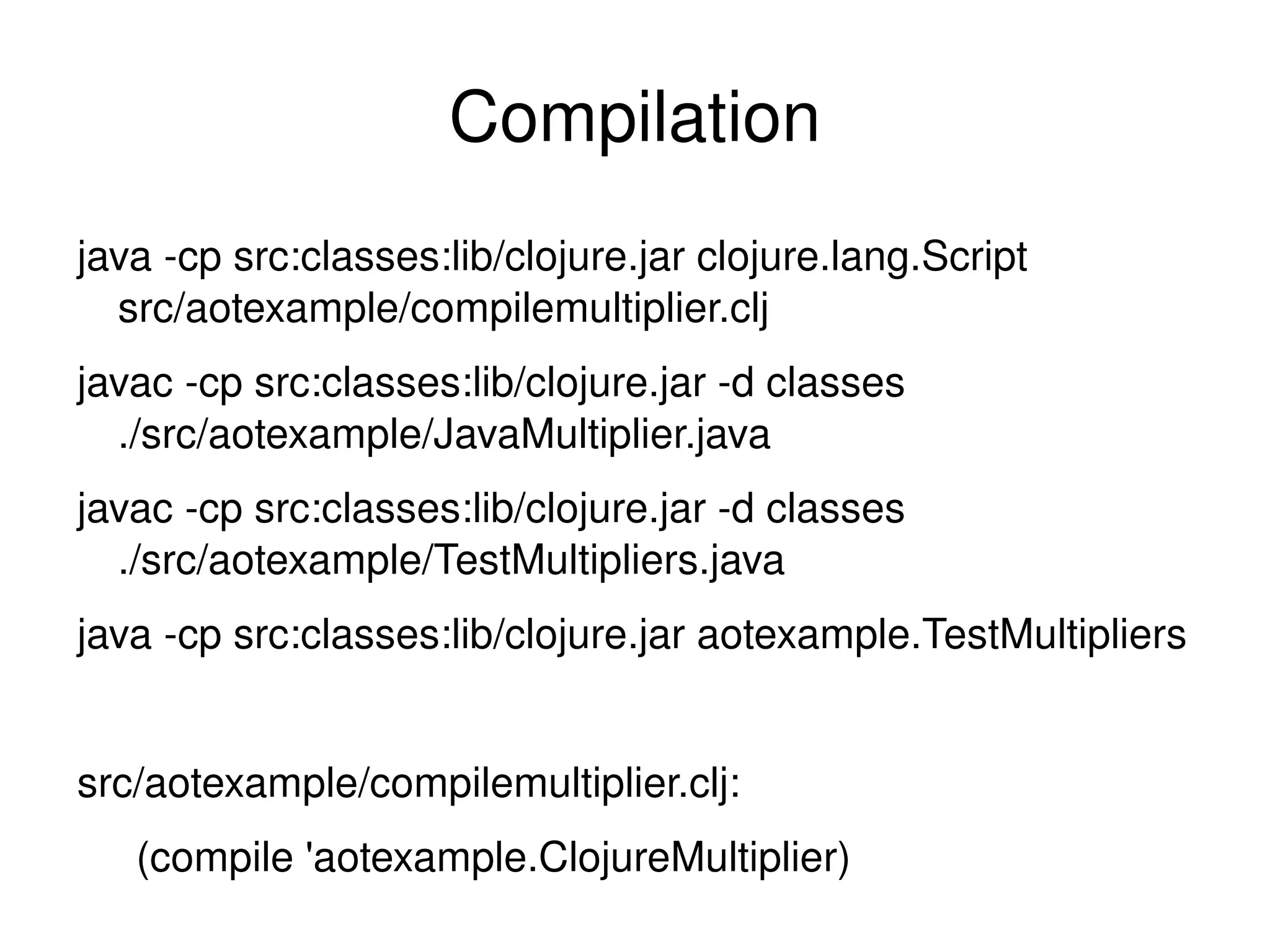
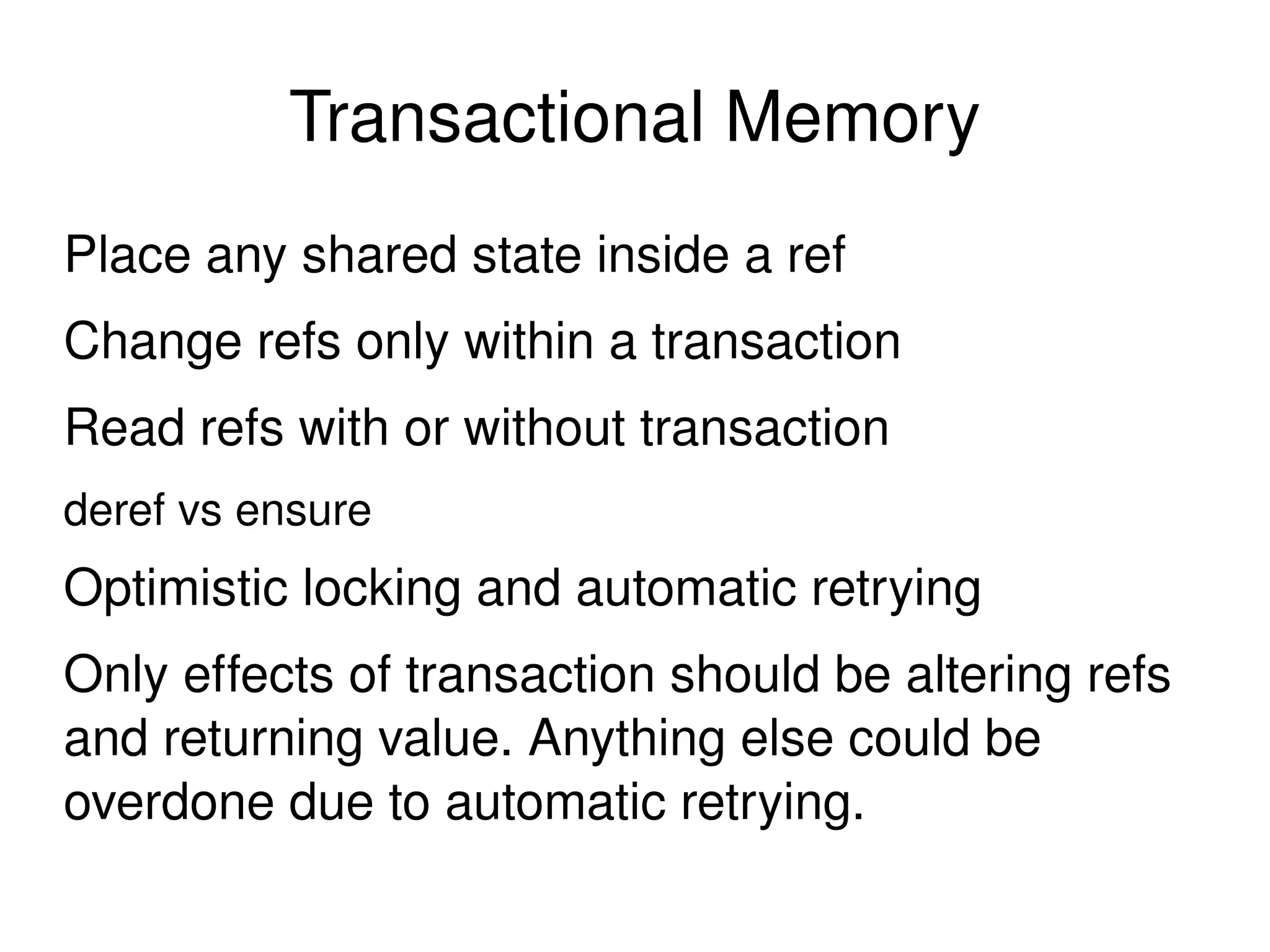
![Transaction Example
(defn transfer [from to amount]
(dosync
(when (> (ensure from) amount)
(alter from (fn [x] ( x amount)))
(alter to (fn [x] (+ x amount))))))
(def account1 (ref 2000))
(def account2 (ref 1000))
(transfer account1 account2 1000)
(dosync [(ensure account1) (ensure account2)])](https://image.slidesharecdn.com/clojure-gatorlug-2009-02-17-100131101311-phpapp01/75/Clojure-A-new-Lisp-21-2048.jpg)
